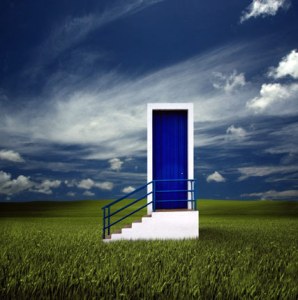Luke 6:17-18, 20: And he came down with them and stood on a level place, with a great crowd of his disciples and a great multitude of people from all Judea and Jerusalem and the seacoast of Tyre and Sidon who came to hear him . . . And he lifted up his eyes on his disciples, and said . . .
Blessed are the poor . . . Woe to you who are rich;
Blessed are the hungry now . . . Woe to you who are full;
Blessed are you who weep now . . . Woe to you who laugh now—
His mother spoke of this: “He has toppled the mighty from their thrones and exalted the lowly. He has satisfied the hungry with good things and sent the rich away empty” (1:52-53). This is how it begins: on a level place, with the hungry and lowly crowded around and power coming out of him, “healing them all.”
If you were a disinterested observer tagging along you might wonder what all the fuss is about. Or just where this great teacher is. He doesn’t stand out: you might think the tall muscular fellow listening indulgently to a sorrowful woman might be the one, or the attractive youngster spiritedly arguing with a couple of Pharisees. But when the crowd sorts itself out and grows quiet, he appears in the middle of three concentric circles: the crowd, the disciples, the twelve, and . . . You blink your eyes: that’s him? He doesn’t shine, he’s not dressed in white, and he’s not especially handsome—so ordinary, in fact, that you won’t be able to visualize him tomorrow.
But you won’t forget the voice, or the words. His words shake and remake the world you know.
Kings are not visibly falling from their lofty thrones, nor are the rich seeing their wealth melt away before their eyes. Instead, here’s another way to understand riches and poverty, power and weakness. Matthew calls it the Kingdom. Luke doesn’t use that term as often, but he’s talking about the same thing. It’s the alternate world, the real-er world.
Alternate universes are all the buzz in theoretical physics. What Jesus introduced 2000 years ago is the alternate world. Real, not theoretical. The Kingdom. Beyond his startling reversals that level the rich and raise the poor stand a shimmering outline of gates, turrets, and towers any materialist would classify as illusion. But is it?
This place we live now—it’s real. He never said it wasn’t. Hunger, sorrow, lack and want, all real. The  difference is not between real and illusion, but between “now” and now: a time bound by walls of circumstance, and a time set free. It’s like we’re living in the anteroom, or even the coat closet where we wait in rags and muddy boots. You can start taking those off now, he says; all your disappointments and deprivations are to be left here. Don’t mind the walls—anticipate the door. Are you poor, hungry, sad? A joyful feast waits behind that door. Do you come well-fed and expensively dressed? Those designer labels and fast cars are worthless in the Kingdom. There’s a whole other currency, didn’t you know? And your accolades and reputation won’t carry over. They speak a different language there; try to boast in your own achievements and all you will get are puzzled frowns.
difference is not between real and illusion, but between “now” and now: a time bound by walls of circumstance, and a time set free. It’s like we’re living in the anteroom, or even the coat closet where we wait in rags and muddy boots. You can start taking those off now, he says; all your disappointments and deprivations are to be left here. Don’t mind the walls—anticipate the door. Are you poor, hungry, sad? A joyful feast waits behind that door. Do you come well-fed and expensively dressed? Those designer labels and fast cars are worthless in the Kingdom. There’s a whole other currency, didn’t you know? And your accolades and reputation won’t carry over. They speak a different language there; try to boast in your own achievements and all you will get are puzzled frowns.
He makes it sound so . . . well, so real. So certain. While he speaks the gates of the Kingdom grow taller, thicker, definite, as though an angel were beside it with a measuring rod, marking off the cubits.
But I say to you who listen . . . Keep listening!
Up next: Love your enemies!?
For the original post in this series, go here.
Next>
